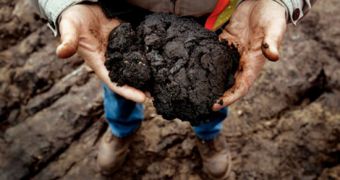About five years ago, TransCanada Corporation, i.e. a North American company that is in the business of development and operating energy infrastructure, applied for a permit that would allow it to build a pipeline linking tar sands in Alberta, Canada to refineries in Texas and Louisiana in the United States.
Despite having been asked to make a decision of several occasions, President Barack Obama has for some time been avoiding giving a clear answer concerning whether or not the proposed Keystone XL pipeline will be given the green light in the not so distant future.
However, now that the country's State Department has issued a report saying that, all things considered, the pipeline's environmental impact would be minimal, odds are the president will soon have to break the silence on this topic.
In its report, the State Department argues that, according to its investigations into the matter at hand, carbon-heavy oil will be extracted from Alberta's tar sands regardless of whether or not the Keystone XL pipeline is built.
Otherwise put, tar sands oil, which has been documented to release about 17% more greenhouse gas emissions than conventional ones, will end up being burned regardless of what President Obama has to say about said project.
Consequently, the Keystone XL pipeline cannot be argued to be in itself a major contributor to an increase in the amount of greenhouse gas emissions that hit the environment on a yearly basis, Yale Environment tells us.
“It's unlikely for one pipeline to change the overall development of the oil sands,” an official working with the State Department reportedly said in a statement. “Climate changes are anticipated to occur regardless of any potential effects from the proposed project,” the report further stresses.
As far as the ecological footprint associated with the Keystone XL pipeline in itself is concerned, it would appear that emissions resulting from fuel use in construction vehicles and equipment, land clearing, and from electricity usage will be the equivalent of about 300,000 cars, Clean Technica reports.
According to the same source, the specialists working with the US State Department are quite convinced that, all in all, accidental oil spills are the greatest threat that this project poses to the environment.
If approved and built, the Keystone XL pipeline will carry some 830,000 barrels of crude oil on a daily basis. As far as the National Wildlife Federation in the United States is concerned, “This is a large source of carbon that's going to be unleashed.”

 14 DAY TRIAL //
14 DAY TRIAL //